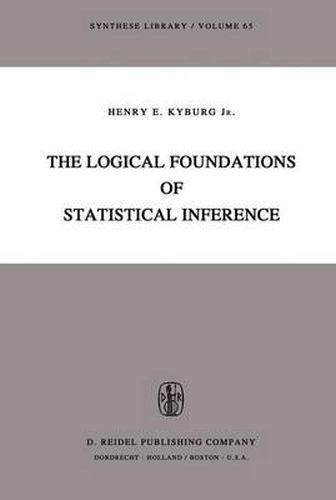This title is printed to order. This book may have been self-published. If so, we cannot guarantee the quality of the content. In the main most books will have gone through the editing process however some may not. We therefore suggest that you be aware of this before ordering this book. If in doubt check either the author or publisher’s details as we are unable to accept any returns unless they are faulty. Please contact us if you have any questions.
Everyone knows it is easy to lie with statistics. It is important then to be able to tell a statistical lie from a valid statistical inference. It is a relatively widely accepted commonplace that our scientific knowledge is not certain and incorrigible, but merely probable, subject to refinement, modifi cation, and even overthrow. The rankest beginner at a gambling table understands that his decisions must be based on mathematical ex pectations - that is, on utilities weighted by probabilities. It is widely held that the same principles apply almost all the time in the game of life. If we turn to philosophers, or to mathematical statisticians, or to probability theorists for criteria of validity in statistical inference, for the general principles that distinguish well grounded from ill grounded generalizations and laws, or for the interpretation of that probability we must, like the gambler, take as our guide in life, we find disagreement, confusion, and frustration. We might be prepared to find disagreements on a philosophical and theoretical level (although we do not find them in the case of deductive logic) but we do not expect, and we may be surprised to find, that these theoretical disagreements lead to differences in the conclusions that are regarded as ‘acceptable’ in the practice of science and public affairs, and in the conduct of business.





